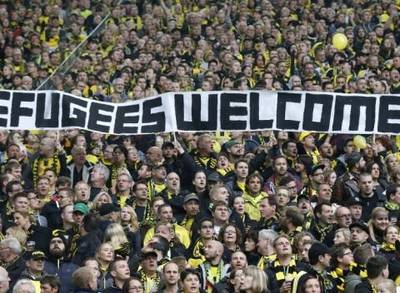TRISTAN WILLENBURG WRITES – Since 2011, the conflict in Syria has caused a massive refugee exodus. A large majority are now located in the countries of Turkey, Lebanon, Jordan, Iraq, and Egypt. Recently, several European countries have begun to allow Syrian refugees into their borders. While these are promising steps, they have also opened up criticism of places like the Gulf States for allegedly not doing enough to help. In Saudi Arabia, a large source of the criticism was a discovery made by journalists in the town of Mina: 100,000 empty, air conditioned tents that are normally used to house pilgrims on their way to Mecca. These are estimated to be able to shelter up to 3 million people.
The Gulf States have decried the criticism, saying that it is unfounded and they are doing their best to help. King Salman of Saudi Arabia called the accusations “false and misleading,” and another top official said that Saudi Arabia “will always remain at the forefront of countries supporting the brotherly Syrian people and will not accept any overbidding in this matter or questioning its positions.”
The Saudi state news agency, SPA, reported that the country had received 2.5 million Syrians since the civil war started, though other estimates put the number much lower. The Saudis also claim to have provided significant financial help to the countries with the majority of the refugees.
There are a variety of reasons that these official positions on Syrians have been met with skepticism. Simple geography may be one, as the Gulf States share neither a land nor a sea border with Syria. A Saudi official also explained that, “Saudi Arabia dealt with the situation from a religious and humane perspective, and did not wish to boast about its efforts or attempt to gain media coverage.” The Gulf States are also not signees of the Geneva Convention on refugees. Syrians entering Saudi Arabia are called “guests” or “workers” rather than “refugees,” making it harder to determine their exact number. The designation of “guest” brings the host country prestige, because it implies that the host is wealthy and stable enough to invite people in. This designation also allows Saudi Arabia “to ensure their dignity and safety and [give] them complete freedom of movement” by not treating them as refugees, said a state official. There are also security concerns that terrorist groups such as Al Qaeda or ISIS may infiltrate groups of refugees.

